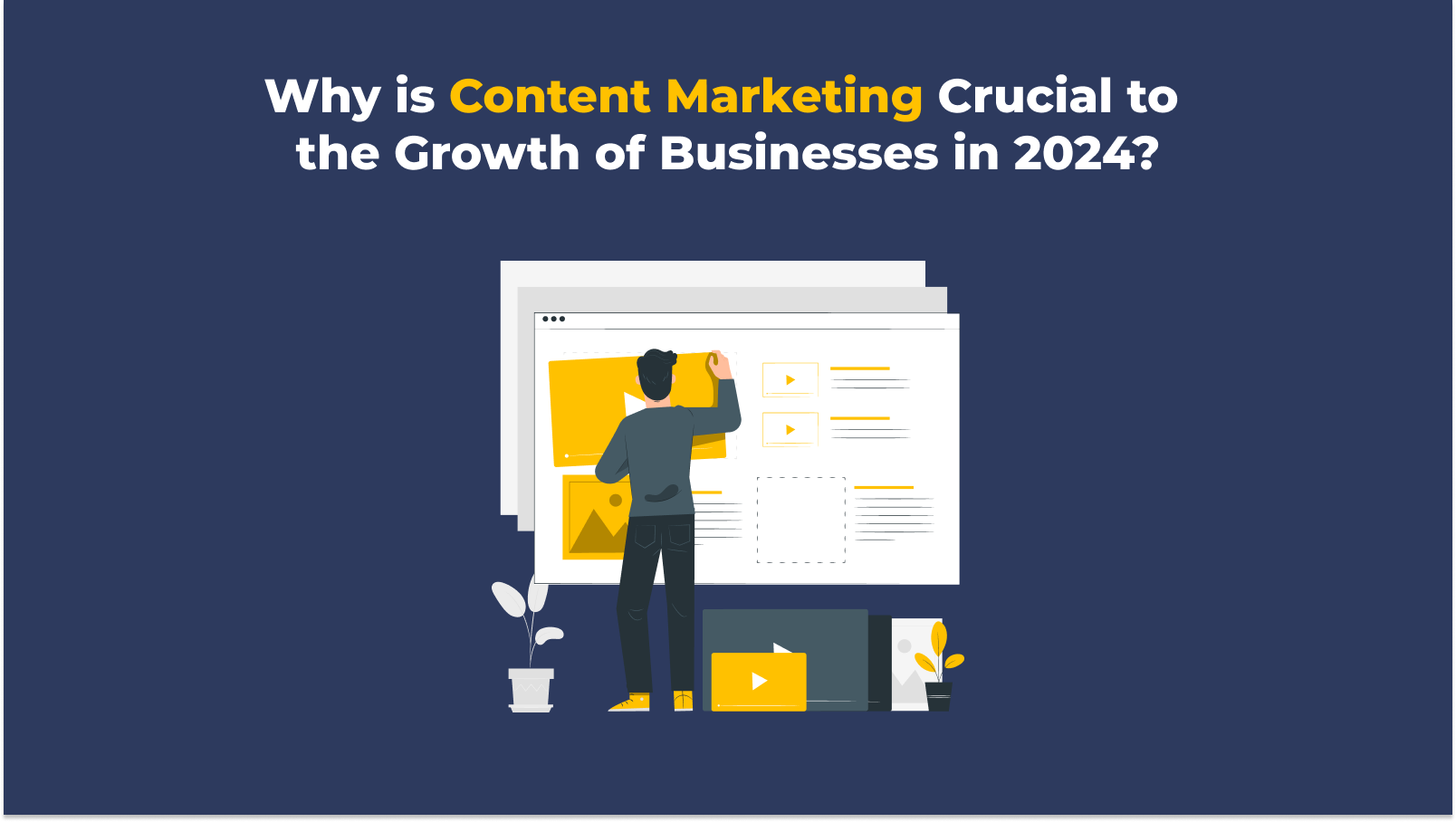In the rapidly evolving landscape of business, content marketing has emerged as a fundamental pillar for driving growth and staying ahead of the competition. As we step into 2024, businesses must recognize the unparalleled value that content marketing brings to the table. Let's delve into why content marketing is not just important but absolutely crucial for business growth in the coming year.
1. Content marketing is how you become recognized as an expert and a leader in your industry.
In today's information-rich world, establishing authority and expertise within your industry is paramount. Content marketing provides businesses with a platform to showcase their knowledge, insights, and innovative ideas. By consistently delivering high-quality content that addresses the needs and challenges of their target audience, businesses can position themselves as leaders in their field. Whether through blog posts, whitepapers, case studies, or webinars, content marketing allows businesses to demonstrate their thought leadership and expertise, earning the trust and loyalty of their audience.
2. Content marketing is incredibly cost-effective.
Unlike traditional advertising channels that often come with hefty price tags, content marketing offers a cost-effective alternative for businesses to reach and engage their audience. Through various platforms such as social media, blogs, videos, and email newsletters, businesses can deliver valuable content to their audience without breaking the bank. By leveraging existing resources and creativity, content marketing allows businesses of all sizes to achieve significant returns on investment, making it an accessible strategy for driving growth.
3. Content marketing is the fundamental key to a market-winning organic marketing strategy.
In an era where consumers are increasingly immune to traditional advertising tactics, organic engagement has become more valuable than ever. Content marketing serves as the cornerstone of an effective organic marketing strategy, driving visibility, engagement, and conversions without solely relying on paid ads. By producing relevant, high-quality content optimized for search engines and social media platforms, businesses can attract and retain their audience organically, fostering genuine connections and loyalty over time.
5 Steps to Get Started with Content Marketing
1. Define your audience and objectives:
Understand your target audience's demographics, preferences, and pain points. Align your content marketing objectives with your overall business goals to ensure relevance and effectiveness.
2. Create captivating content:
Develop catchy content that resonates with your audience. Trying with diverse formats, such as blog posts, videos, podcasts, etc., to cater to various preferences and interests.
3. Optimize for Search Engines:
Incorporate relevant keywords and optimize your content for search engines to improve visibility and ranking.
4. Promote Across Channels:
Utilize various channels, such as social media, email newsletters, and industry forums, to promote your content and expand your reach.
5. Measure and iterate:
Monitor key metrics to evaluate the effectiveness of your content marketing efforts. Use insights gathered to refine your strategy and drive continuous improvement.
Conclusion:
In conclusion, content marketing is not just a trend but a strategic imperative for businesses aiming to thrive in 2024 and beyond. By embracing content marketing as a core component of their growth strategy, businesses can establish industry leadership, drive cost-effective growth, and build lasting relationships with their audience. With the right approach and dedication, content marketing can be a powerful tool for achieving sustainable business growth in the digital age.
Frequently Asked Questions (FAQ)
- Why is content marketing important for my business?
Content marketing helps establish your brand as an authority in your industry, attracts and engages your target audience, and drives organic traffic to your website.
- How can I calculate the success of my content marketing efforts?
You can calculate and measure success through metrics such as website traffic, engagement rates, lead generation, and conversion rates. Additionally, tracking your social media metrics and keyword rankings can provide valuable insights into the effectiveness of your content marketing strategy.
3. Is content marketing really suitable for small businesses with limited budgets?
Yes, content marketing is highly cost-effective and can be tailored to suit any budget. By leveraging existing resources and focusing on creating valuable content, even small businesses can achieve significant returns on investment with content marketing.
4. How long does it take to see the outcome from content marketing?
The timeline for seeing results from content marketing can vary depending on factors such as your industry, target audience, and the consistency of your efforts. While some businesses may see immediate results, it's important to view content marketing as a long-term strategy that requires patience and perseverance.

